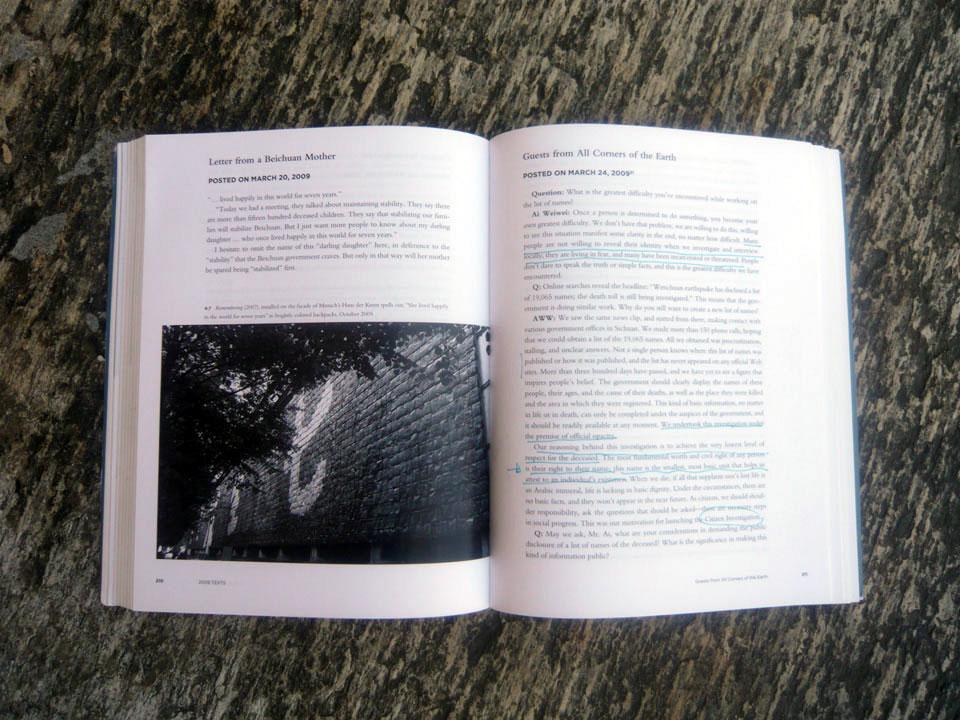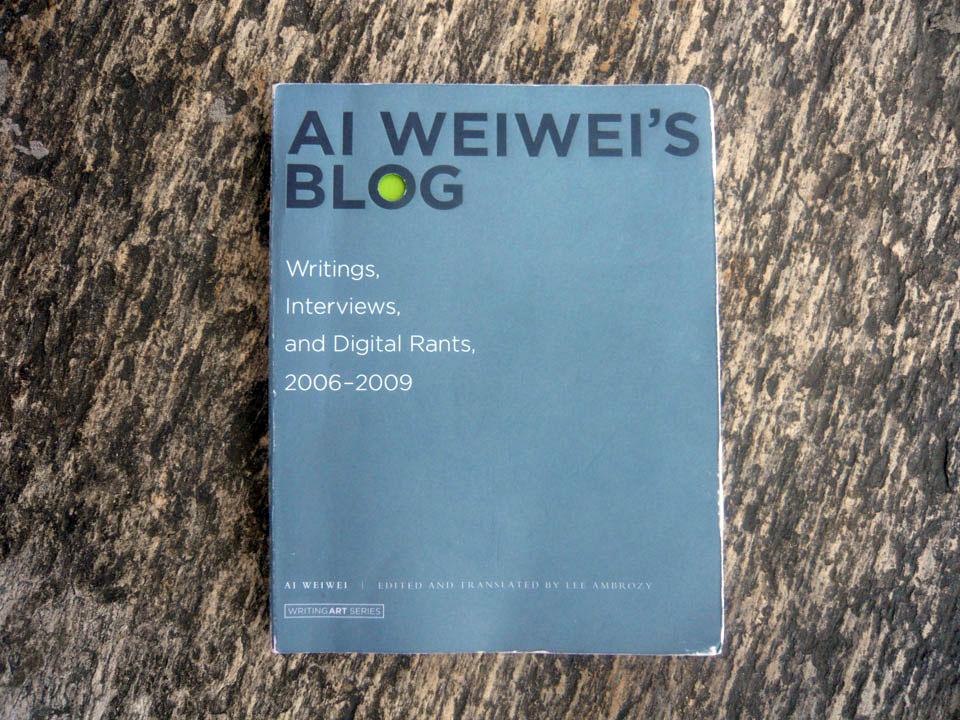"Creativity is the power to reject the past, to change the status quo, and to seek new potential."[1]
In the same year that the Chinese Communist Party is celebrating its 90th birthday, patting itself on the back for its battle against an archaic feudal system, China is still an authoritarian state in which any form of dissent or opposition is prohibited both on a personal level as well as on any kind of collective political level. This is the case of the artist Ai Weiwei, recently at the center of international attention after having been arrested by Chinese authorities and incarcerated in an unknown location for 80 days, from April 3 to June 22 with the vague accusation of tax evasion.
Starting from January 2006 and for 29 months, Ai Weiwei kept a blog in which, almost every day, he published thoughts, considerations and images. The blog, hosted on sina.com, was closed by censors on May 28, 2009 and all of its content immediately removed. The book, Ai Weiwei's Blog. Writings, Interviews, and Digital Rants, 2006–2009, recently published by MIT press, (Cambridge, Massachusetts) collects, translates and publishes, for the first time, a selection from the over 2700 posts. For the moment, it is the most complete documentation of the blog and its content, an instrument that had become the artist's most important means of expression for 4 years and that, in a very short time occupied 90% of his energies.
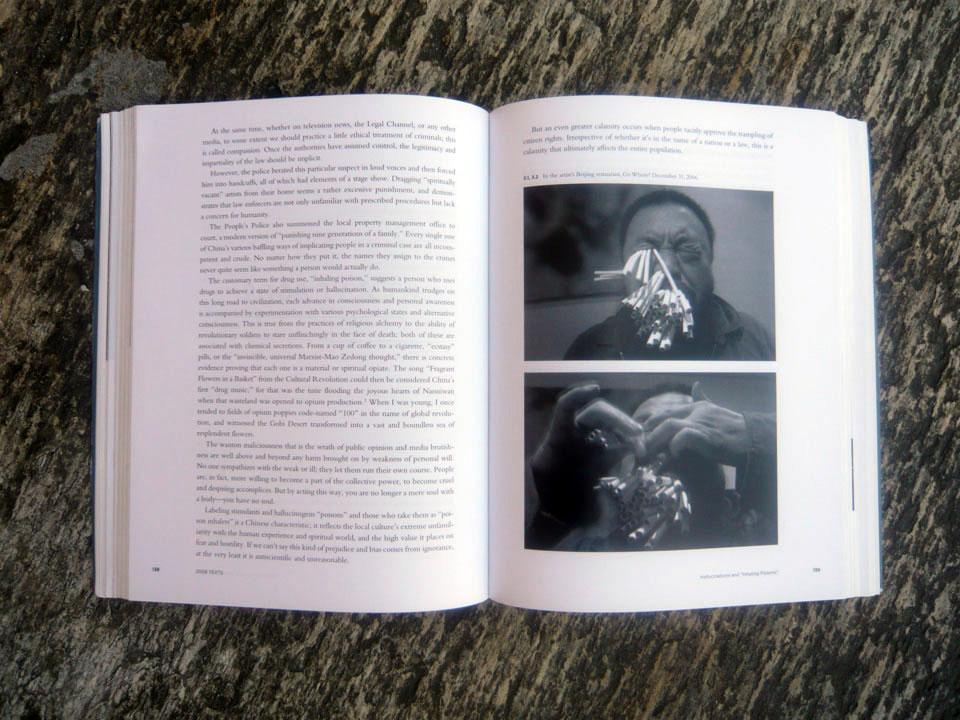
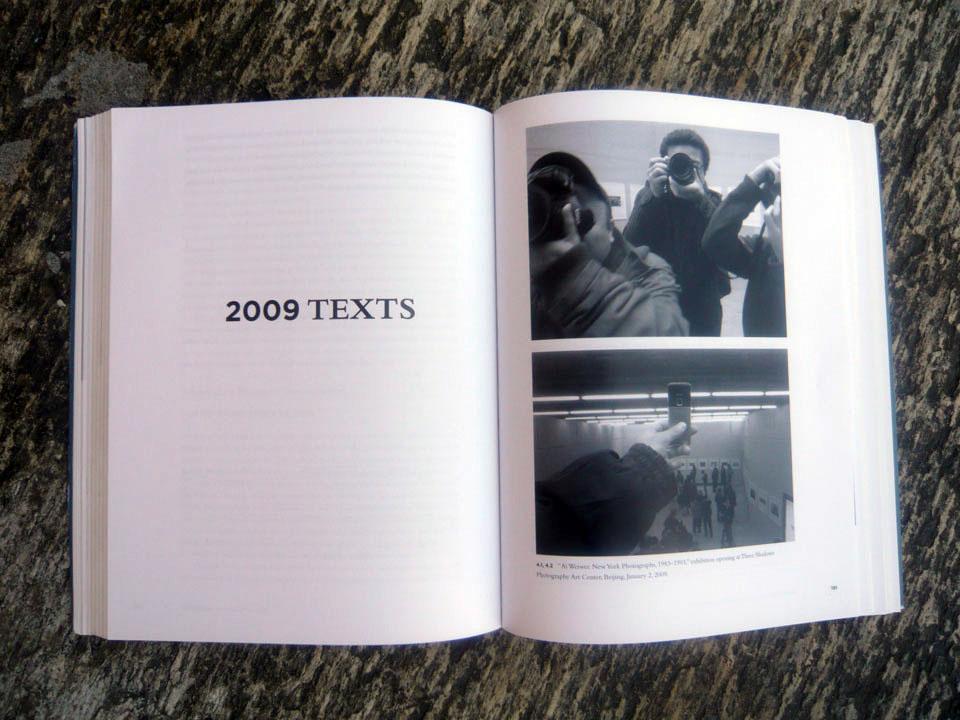
The blog also became a place for waging a boycott against the Peking Olympics in 2008, criticized notwithstanding the artist's direct involvement in the construction of the Olympic Stadium, Bird Nest, in collaboration with the Swiss firm Herzog & De Meuron.
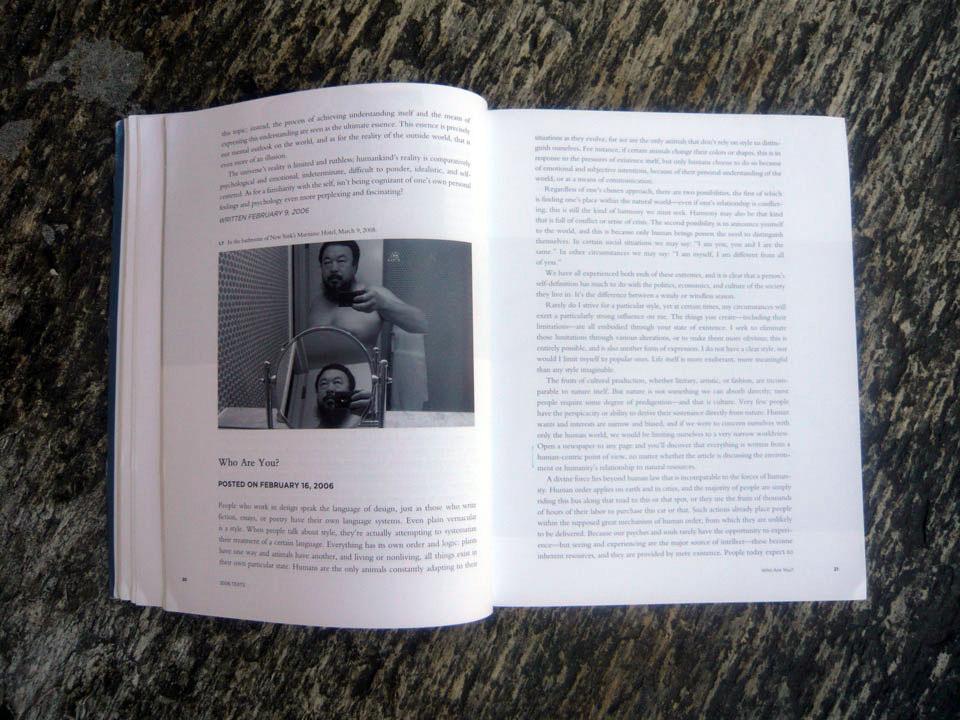
This book opens a new way for us to understand modern China, a society that is still very distant but increasingly present in our lives. It reminds us, in Ai Weiwei's words in the Citizen Investigation appeal that, "Your actions create your world." A great lesson in democracy, freedom and courage.
NOTES
[1] Ai Weiwei, posted on January 30, 2008.
